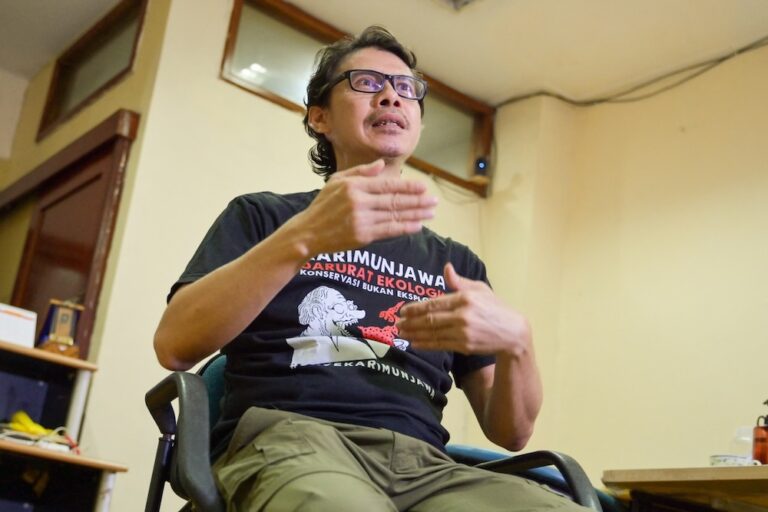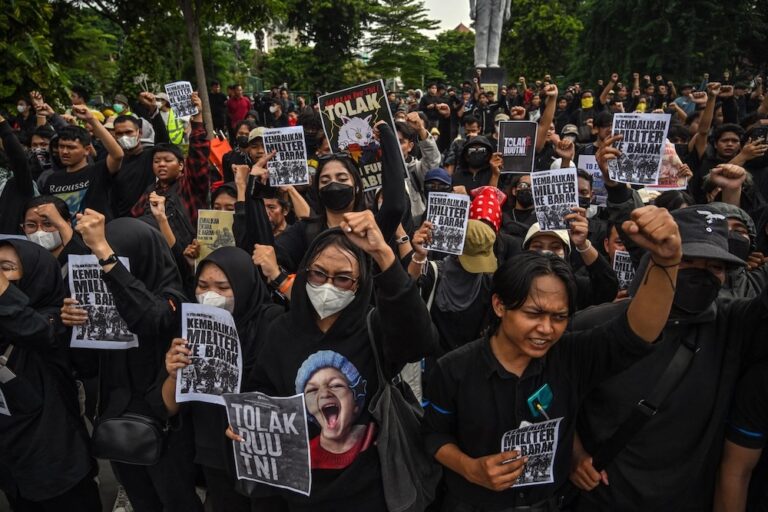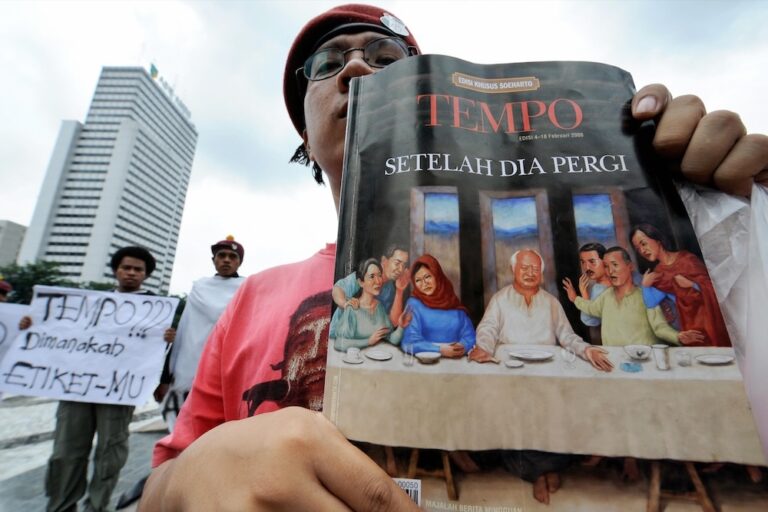(RSF/IFEX) – Reporters Without Borders has hailed the resumption this week of an inquest into the murders of cameraman Brian Peters and four other journalists 32 years ago in East Timor, saying it hoped every aspect of their deaths would be clarified and insisting that it was not too late for those responsible to be […]
(RSF/IFEX) – Reporters Without Borders has hailed the resumption this week of an inquest into the murders of cameraman Brian Peters and four other journalists 32 years ago in East Timor, saying it hoped every aspect of their deaths would be clarified and insisting that it was not too late for those responsible to be punished.
After suspending hearings for two months, a Sydney coroner resumed the inquest behind closed doors on 2 May 2007. The five journalists, all employed by Australian news media, were killed in the town of Balibo on 16 October 1975, at the start of an Indonesian invasion of East Timor.
“We hope that all the people summoned by coroner Dorelle Pinch, including Gough Whitlam, Yunus Yosfiah, Guy Peterson, Michael Griggs, Ronald Shepherd, Sam O’Shea and Brian Osborne, will come and testify before the Sydney court,” Reporters Without Borders said. “Their testimony will be crucial for shedding light on the murkier aspects of this case. Justice must finally be rendered to the families of these five journalists, who were killed for seeing ‘too much’ in Balibo.”
David Jenkins, a former editor of the “Sydney Morning Herald”‘s international service, told the inquest on 2 May that Indonesian army officers were aware of the journalists’ presence in Balibo before they took the town. Indonesia’s Gen. Benny Murdani, for example, said in an interview on 22 July 1995 that he had known the five journalists were in Balibo. Another Indonesian army officer, Col. Dading Kabualdi, said in an interview around the same time that he was in Balibo that day.
Jenkins added that, in the course of a phone conversation in 1999, he obtained an implicit admission from then Indonesian information minister Yunis Yosfiah that he had been in Balibo during the 1975 invasion.
A former telephone operator at the Sydney international telephone exchange told the inquest on 3 May that she overheard a phone conversation in which a native English-speaking man in the East Timor capital of Dili told someone at the Melbourne-based “The Age” newspaper that Indonesian troops killed the five journalists. She said she remained silent until now for fear of being punished under the Crimes and Official Secrets Act. Despite assurances of immunity from the coroner, other witnesses also expressed concern about testifying freely to the inquest.
Several letters received by the coroner in the past two months from politicians who were in office in 1975 were read out to the court on the afternoon of 2 May. Former defence minister Bill Morrison confirmed in one of the letters that he was told of the deaths of the five journalists only six hours after the event, in a meeting at the defence ministry attended by then intelligence chief Gordon Jockel. He received confirmation of the news at 4:00 p.m. (local time) the same day from Arthur Tange, the then secretary of the department of foreign affairs.
Then Prime Minister Gough Whitlam continues to insist he did not know about the deaths of the five journalists until five days after the event. He and Morrisson are scheduled to testify to the coroner on 8 May. But Australia’s ambassador to Indonesia in 1975, Richard Woolcott, has not been summoned although he met senior Indonesian army officers shortly before the killings.


